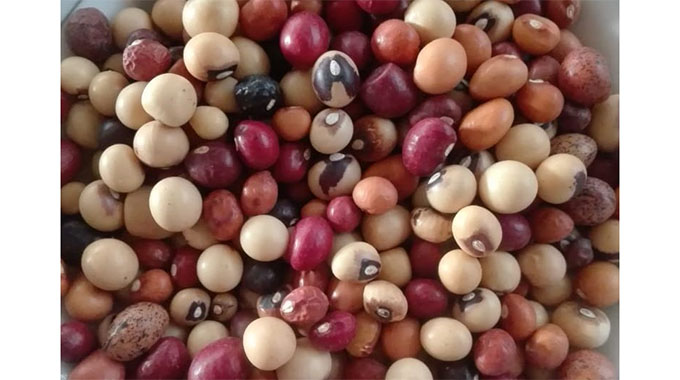CTDT project improves farmers’ access to climate resilient crops

Monalisa Chikwengo
MANY households in Masvingo have in recent times recorded improved access to high quality seeds that are slowly transforming the agricultural production landscape for the better, thanks to the Seeds for Future (SEFF) project that will be rolled out for three years by the Community Technology Development Trust (CTDT) after getting underway in May 2022.
The project seeks to promote the adoption of climate-resilient crop varieties among smallholder farmers in the drought-prone province to boost food security with farmers also receiving training on sustainable agricultural practices as well as improving access to high-quality seeds.
Under the project, farmers in districts such as Chiredzi, Mwenezi and Masvingo rural are encouraged to adopt climate-resilient crops such as pearl millet, sorghum, finger millet, cowpeas, groundnuts and roundnuts that can fare significantly better than other crop varieties Masvingo’s arid conditions.
CTDT Executive Director, Mr Andrew Mushita said by improving farmers’ access to high-quality seeds and training them on sustainable agricultural practices, the SEFF project was helping to build resilience and improve food security in the region.
“The action seeks to promote communities’ use of crop varieties suited for their different agro-ecological regions, up-scale the practice of traditional seed conservation, seed storage, seed multiplication and proper usage, weir construction and micro-irrigation establishment for household nutrition,” he said.
In its first year, the SEFF project managed to reach 673 households directly.
The project has also managed to set up 45 farmer field school plots in the selected districts, each with at least one hectare, further observed Mr Mushita.
He added that the adoption of climate resilient crop varieties had been credited with improving food and nutrition security in the province.
“Communities have experienced food insecurity as a result of inconsistent rainfall over time and climate change. Under the changing climatic conditions, maize, which was heavily promoted throughout the country, is not performing well. Promotional traditional grains and legumes are tolerant of fluctuating climatic conditions. Maize, for instance, dries up after more than three weeks without rain, whereas finger millet can survive. As a result, the type of crop planted has a direct impact on food security,” he said.
The project is being funded by the Italian Development Cooperation (AICS) with four implementing partners namely Co-operation for the Development of Emerging Countries (COSPE) Onlus as the lead, CTDT, Erre des Hommes Italia (TDH), Sustainable Agriculture Trust (SAT) and Women in Land Zimbabwe (WLZ).
CTDT uses a number of methodologies in identifying and developing climate resilient crop varieties.
“The organisation uses a people-centred approach in determining the type of crop and crop varieties to work with. Community members come together to share information on the different crops they utilise nowadays and, in the past, using trend analysis. This helps get an understanding of the use of crops and changes, as well as losses of crops that have taken place over time,” he said.
Mr Mushita further explained the challenges they have faced in the promotion of climate-resilient crops.
“National seed laws do not allow the commercialisation especially of farmer saved seeds. CTDT and partners have been advocating changes in laws to accommodate commercialisation of farmers’ seed through the farmers’ rights initiative,” he said.










Comments